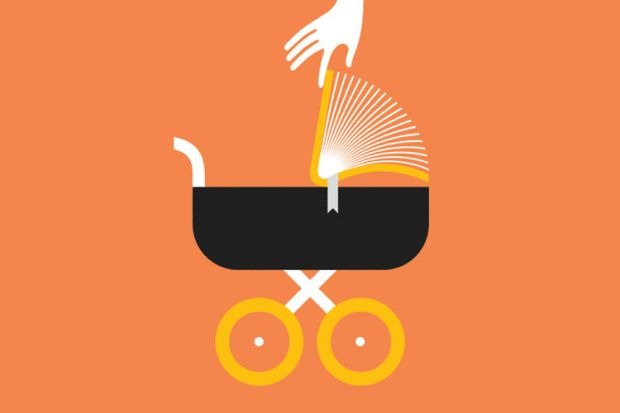I was euphoric when, two weeks after starting my PhD, I found out I was pregnant. Having been brought up with the feminist conviction that I could “have it all”, and having reassured myself that maternity leave and childcare funding would be available to me, I felt sure I could successfully juggle childcare and doctoral study.
On a bleak January day five years later, as I numbly handed in my thesis, I reflected on how wrong I had been. In reality, the cost of childcare brought my family to its financial knees – and the stress that it imposed on my marriage, my parenting and my mental health has led me to quit academia for good.
When I learned I was pregnant I quickly applied for the government childcare funding for students that I had researched, and I put my son’s name down for the university nursery. It wasn’t until he was due to start that I was informed that the funding was not available for doctoral candidates. Nothing in the available information had made that clear. Had I known what was to come, I would have given up there and then.
Instead, I went to my university for advice and spent months being sent from one department to another. Not only did there seem to be no funding for PhD students with children, no one even knew who I could turn to for help.
Between my husband’s low-paid job and my studentship, we somehow managed to get by. He then quit his job to look after our son full time so I could do my fieldwork in Brazil. There, the cost of renting and childcare is much lower, and we were able to supplement our income with some ad hoc translating. But by the time we returned to the UK for the third year of my PhD, I wanted to quit. I still loved my research but I could see what pursuing it was doing to my family, as it absorbed all the time made available to me by our parenting shift work.
In my final year, despite everything we had been through, we had another child. You might well wonder why. The answer is that we didn’t want our son to be an only child, and nor did we want the gap between him and his sibling to be too big. In other words, I chose my family over my research. I used my maternity leave to carry on slowly chipping away at the chapters I needed to write and the data I needed to analyse.
Then my studentship ran out. I spent hours researching and applying for every grant I could find, but since the recession even funding for exceptional female graduates in science, technology, engineering and maths is harder to come by. There was nothing left for those scraping by at the bottom of the academic pool, juggling sleepless nights and breastfeeding with data analysis and journal submissions.
I could have found part-time work but was advised against trying to fit any more in. In the end, we decided I should stake everything on a dash to the end and a jump into any work whatsoever immediately afterwards. And so, with six months to go and most chapters nearly done, we conceded that we could no longer afford to rent and moved back in with family. If it had not been for their generosity in housing a family of four, I could not have finished my thesis.
But even though I did finish it, I knew it was the end of the academic road for me. When I had been offered a PhD studentship I was young, unmarried and childless. I was happy to live on toast if that was all the funding would stretch to while I immersed myself in research. I had no intended career path, no worries about future earning potential or what I might do with a doctorate. Now, though, I was responsible for two young children. I needed either to be caring for them myself or earning enough to cover their care. I could not live with the insecure job prospects faced by early career researchers. After all, if I couldn’t compete as a PhD student, if I couldn’t combine parenting with keeping up with my peers, how would I be able to compete for a postdoctoral position?
So now I have a part-time office job (unrelated to ecology) and can finally enjoy real work-free weekends with my family. But I sometimes wish I hadn’t burned out so early.
I still believe it is possible to “have it all”, but only if you have the funding behind you. It’s not enough for universities and funders to offer mentoring, support or careers advice. What postgraduate parents really need is an honest acknowledgement of their responsibilities – and practical measures to help them meet those responsibilities while achieving everything they are capable of academically.
Patty Ramirez passed her viva at a northern research-intensive university earlier this year and is working on minor revisions to her thesis.
后记
Article originally published as: Juggling childcare and a PhD made me quit academia for good (4 June 2015)




